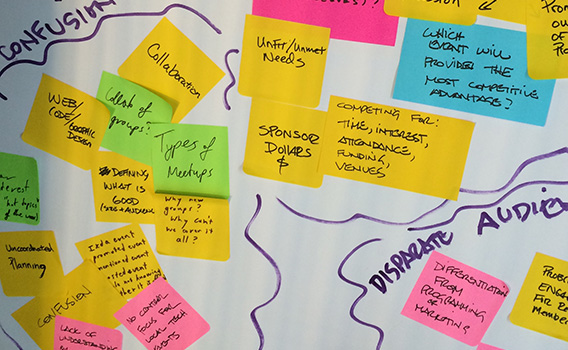
User experience insights
since 1999
Exceed expectations.
Put experience to work. Founder Cia Romano and the Interface Guru team leverage over 20 years of user experience research, design, and training.
Get a digital strategy.
Make the most of your current digital portfolio. Plan for the future. Identify skill gaps. Create consensus.
Our proven Digital Strategy Workshops have served NSF, NIH, NASA, and NOAA.
What can Digital Strategy do for you?


National Oceanographic and Atmospheric Administration at Mystic Aquarium. Learn more at https://innerspacecenter.org/.
We speak science.
Supporting scientists, researchers, and engineers since 1999.
- National Aeronautics and Space Administration (NASA)
- National Oceanic and Atmospheric Administration (NOAA)
- National Science Foundation (NSF)
- National Institutes of Health (NIH)
- Zooniverse Citizen Science Platform
- University of Southern California Information Sciences Institute
- Centers for Ocean Sciences Education Excellence (COSEE)